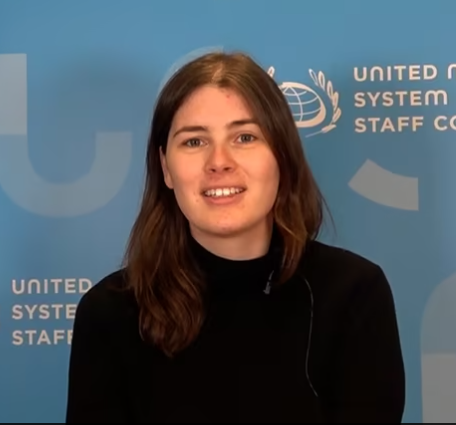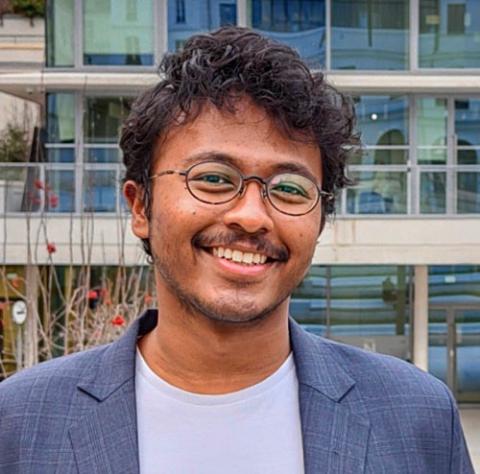Blended learning solutions: key takeaways from a conflict-sensitivity and mediation training in Haiti
“The members of the Security Council expressed deep concern over the deteriorating security and humanitarian situation in Haiti. They condemned in the strongest terms the increasing violence, criminal activities, and human rights abuses and violations which undermine the peace, stability and security of Haiti and the region.” SECURITY COUNCIL PRESS STATEMENT ON HAITI, 23 MAY 2023
It is estimated that 530 people in Haiti were killed in the opening weeks of 2023, including 300 injuries and 277 kidnappings in gang-related incidents. During the first week of June a 5.5 magnitude quake struck in the department of Grand’Anse, followed by torrential rains displacing more than 13,000 people.
The 2030 Agenda for Sustainable Development recognizes that there can be no sustainable development without peace and no peace without sustainable development. UNSSC’s Peace and Security hub is responding to these calls by providing inclusive, high-quality learning solutions which strengthen the UN’s ability to work across pillars to prevent and mitigate conflict, to build resilient societies and to contribute meaningfully to sustainable peace. In partnership with UNDP, UN Women and the PBF Secretariat, the Staff College recently held a Training of Trainers (ToT) - Formation de formateurs - Sensibilité aux conflits et Médiation en Haïti (Training of Trainers - Conflict Sensitivity and Mediation in Haiti).

A ToT workshop is intended to build a pool of competent instructors who can then teach the knowledge, resources and material to other people. Having multiple trainers teaching the same course at the same time in the ToT model, creates broader reach, sustainability, and much more cost and time efficiency.
This blog post explores our key takeaways from our time in Haiti.
- The Blended Approach: Fusing Tradition and Technology: Blended learning combines traditional face-to-face training with digital tools and online platforms. The online components of our offerings are hosted on UNSSC’s online portal – UNKampus30 or “e-Lounge.” With ToTs, this blended approach leverages the strengths of both face-to-face and virtual learning environments. It enables trainers to access learning materials, engage in discussions, and collaborate remotely, overcoming mobility restrictions imposed by Haiti's security situation. The blended approach ensures continuity in training, even during challenging times, and empowers trainers to cascade their knowledge effectively, leading to sustainable change within their communities.
- Adaptation of Learning Materials: The Case of La Saline: To ensure the relevance and contextual appropriateness of training materials, the programme incorporated case studies based on the local context. One such example is the case study on La Saline, a neighbourhood in Port-au-Prince affected by recurring conflicts. By examining real-life scenarios, trainers can develop a deeper understanding of conflict dynamics in Haiti and apply conflict sensitivity and mediation strategies that are tailored to the local context. This adaptation of learning materials enhances the practical application of acquired knowledge and equips trainers to address conflict-related challenges effectively.
- Engagement of National Experts: Co-Facilitators for Local Relevance: Recognizing the importance of local expertise, UNSSC's ToT programme in Haiti engaged two national consultants as co-facilitators. Their participation ensured that the training programme was rooted in the local context, incorporating insights, experiences, and examples specific to Haiti. National experts bring a deep understanding of the socio-political landscape, cultural nuances, and historical context, enriching the learning process and promoting locally relevant approaches to conflict sensitivity and mediation. This collaboration between international trainers and national experts fosters mutual learning, enhances the credibility of the training, and strengthens the capacity of trainers to address the unique challenges faced in Haiti.
- Significance of Conflict Sensitivity and Mediation in Haiti: In a context like Haiti, conflict sensitivity and mediation are critical areas of expertise for trainers working to promote sustainable peace and development. Conflict sensitivity ensures that interventions take into account potential conflict triggers, mitigate harm, and promote positive impacts. Mediation skills empower trainers to facilitate dialogue, understanding, and nonviolent resolution of conflicts within their communities. By focusing on these thematic areas, the UNSSC's blended ToT program equips trainers with essential tools to address the complex conflict dynamics prevalent in Haiti, fostering resilience and contributing to sustainable peacebuilding efforts.

“The members of the Security Council reiterated their continued solidarity with the people of Haiti.” SECURITY COUNCIL PRESS STATEMENT ON HAITI, 23 MAY 2023
The Staff College’s work is geared towards ensuring more coordinated, coherent, and integrated efforts to prevent violence, end conflict, and mitigate fragility. We offer tailored programmes to a range of actors working to promote sustainable and lasting peace. Over the last year, we have worked with Resident Coordinators’ Offices (RCOs) in Armenia, Azerbaijan, and Georgia, with the PBF and its partners in Sudan, and with UNDP Somalia the Federal Government of Somalia.
Blended approaches to ToT, as exemplified by the UNSSC's "Formation de formateurs - Sensibilité aux conflits et médiation en Haïti" programme, hold immense value in contexts like Haiti, where limited mobility due to security concerns poses significant challenges. The blended approach ensures flexibility, continuity, and access to training, empowering trainers to drive change in their communities. By adapting learning materials to the local context, engaging national experts, and focusing on conflict sensitivity and mediation, these programs foster locally relevant and impactful training. This, in turn, enables participants to themselves become agents of sustainable and inclusive change.

